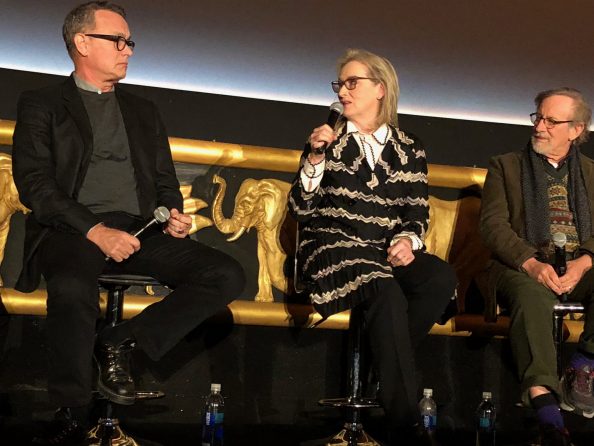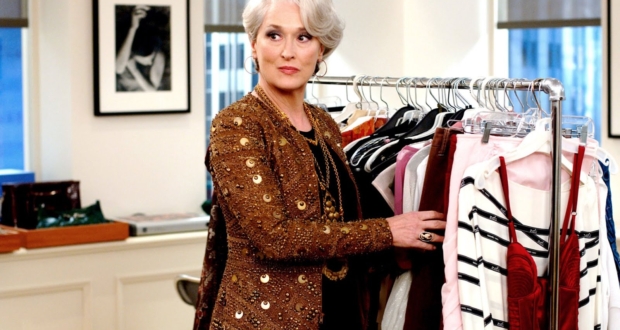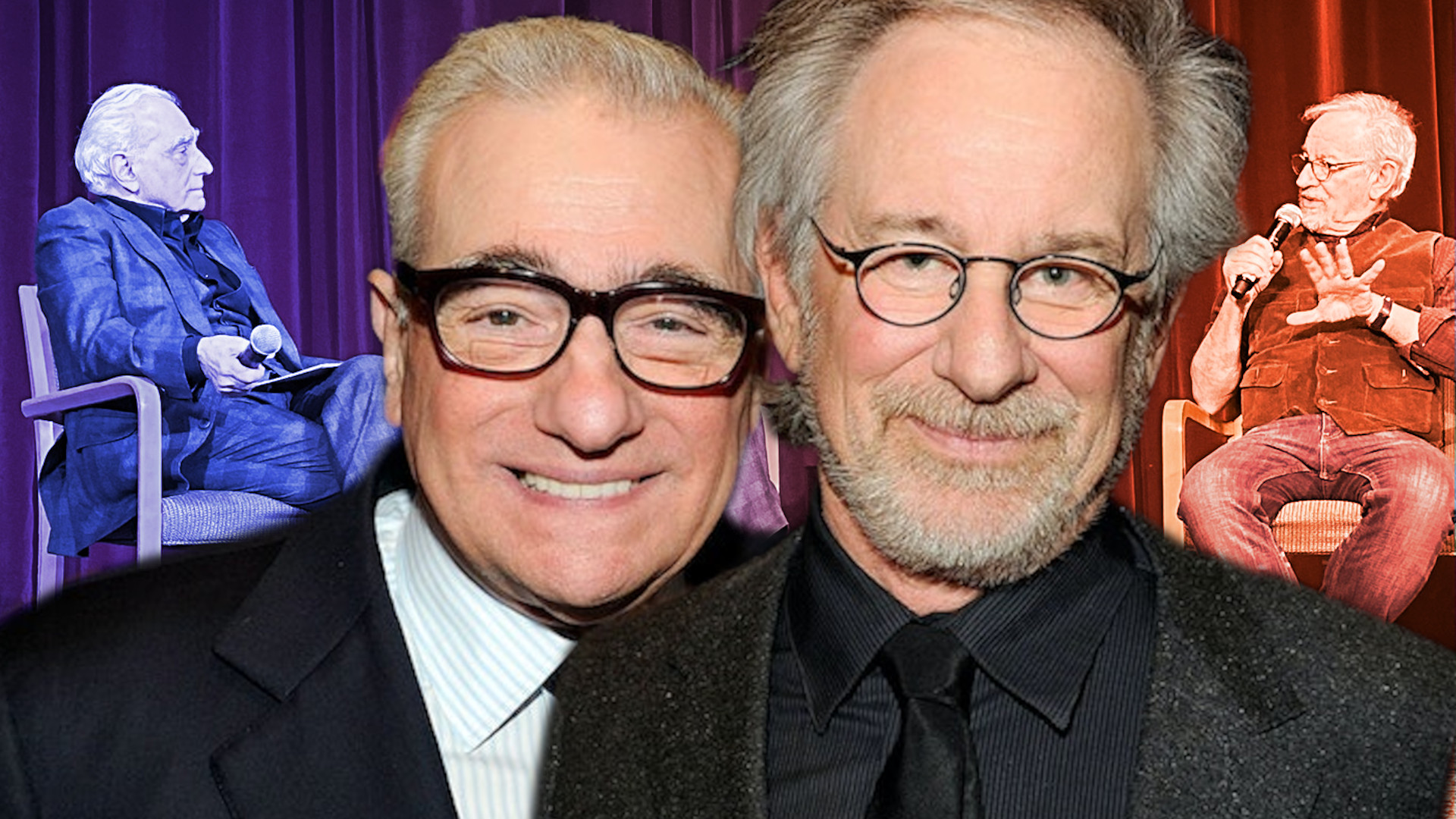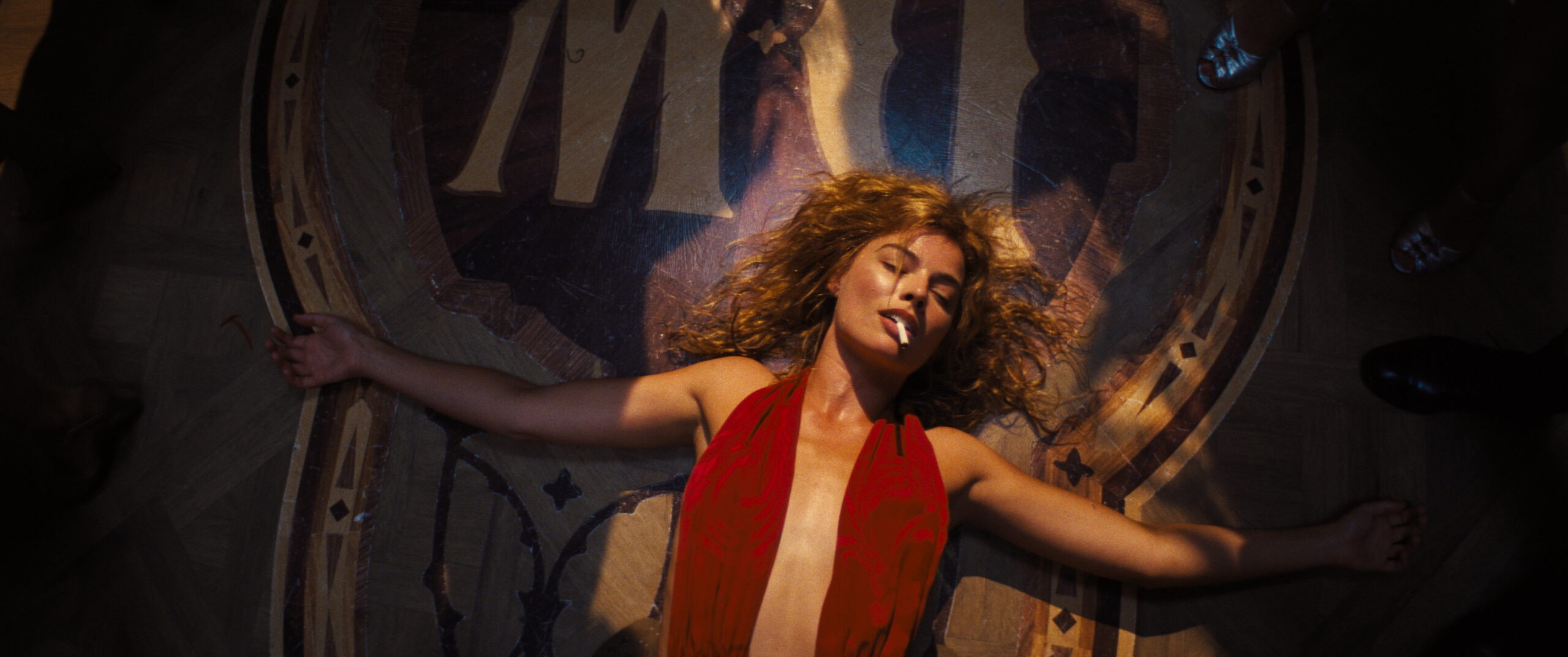I don’t have to tell anyone this is a loony tunes awards season with every day bringing horrific new allegations of sexual harassment and abuse. All this has made for skittish publicists and studio heads putting more restrictions and embargoes on movie reviews and related stories than I’ve ever experienced in covering the long Oscar season.
Last Sunday I attended a special screening of Steven Spielberg’s new film, The Post, about the unlikely partnership and complicated relationship of the Washington Post’s Katharine Graham (Meryl Streep), the first publisher of a major American newspaper, and the paper’s editor Ben Bradlee (Tom Hanks) during the publishing of the Pentagon Papers. The film co-stars Matthew Rhys as Daniel Ellsberg, the man who leaked the documents exposing a massive cover-up of government secrets over three decades and four U.S. Presidents that revealed the war effort to be a lost cause. Bob Odenkirk (“Better Call Saul”) plays colorful Washington Post reporter Ben Bagdikian.
As we streamed into the theater for the hotly anticipated movie, which was attended primarily by SAG members and selected press, we were handed notices that stated in big red letters “all reviews and social sentiment must be held until further notice” with “formal review embargo date and time forthcoming.” The “social sentiment” expression is a new one on me and seems to have been invented for this unprecedented season.
Publicists have had enough agita already this awards season, so to be safe I’ll quote only the starry quests who participated in the Q&A and leave my opinions to myself, although I have to confess after three decades working at the New York Times I am a newspaper movie junkie.

Paula Schwartz photo
The starry guests were introduced with, “This is the Justice League of America,” as the moderator gestured to Streep, Hanks, Spielberg, Odenkirk and legendary costumer designer Ann Roth, who took their seats to a standing ovation.
Steven Spielberg began by saying he was working on another film (“Ready Player One”) for the past 2 1/2 years when producer Amy Pascal handed him a script by a 31 year-old writer who wrote a spec script called The Post.
“It was kind of a remarkable moment,” said Spielberg, who met the writer and soon after that felt this was going “to be a movie that I was going to make immediately while I was still working for Warner Bros making this other movie.” The turn around was fast, as fast as when he made “Munich” because Spielberg said he had a “motivational purpose.”
The Post is a movie about the importance of journalism. “When I read the first draft of the script, this was something that couldn’t wait for three years or 2 years,” Spielberg said. “This was something that I really thought was a story we needed to tell today.”
He brought on Oscar-winning “Spotlight” scribe Josh singer to do the rewrite
To prepare for the film Streep said she dove into Ben Bradlee’s “wonderful book and personal history, amazing, amazing, autobiography which I recommend. I got ready quickly.”
How is it possible this is the first time we’re seeing Tom Hanks and Meryl Streep in a movie together asked the moderator?
“I failed the audition for ‘Mamma Mia,’” Hanks quiiped.

Paula Schwartz photo
As to how he immersed himself in the role of Bradlee so quickly, Hanks said he read the script in February and they started shooting the first of May and were finished by the red week of July.
“That’s how fast it went,” said Hanks, adding, “I had a bit of an advantage, I knew Ben Bradlee. I hung out with him back in the day. I knew Sally his wife very well and we had some fascinating dinners and lunch.” He also met Mrs. Graham at a conference in Idaho, on the day she died, coincidentally he said. “We had lunch together with a bunch of other people and said so long and she went away on her gold cart and she passed away 12 hours later.”
As for embodying Bradlee, Hanks seized on the editor’s “rabid affection for what he did for a living” and how he loved the competitive aspect of his job. At the time he first took on editing duties Washington D.C. “was considered a second tier city” and he insisted it was the most important city in the world noted Hanks.
One thing viewers will take away with from the film is how complicated and labor intensive it was to put out a newspaper in the age of Linotype machines and conveyer belts.
Spielberg said, “Josh Singer and I determined we wanted to show the engineering process of what went into getting ink on you fingers, that this was something that came off on your hands, this was something that came off on your clothes. This was a profession that was about the truth and often the cost of compiling stories and then having to physically go into a room, a Linotype room, the way it used to be in the 19th Century, where it was really hands on press and we wanted to show it (being put together) because we have such respect for all the news organizations from the beginning of news that is able to get this stuff out, along with thousands of distributors and get it to people’s houses the way it was for centuries.”
I should mention that these Linotype machines were also dangerous. When I first started working at the Times, after they switched to cold type, I still saw these veteran print man around in the composing room and many of them were missing fingers. The job was treacherous and many men — they were entirely men —carried the physical scars.
The movie is also about a woman finding her voice. The newsroom, like most aspects of the work force, is male dominated, and was especially so during the period of The Post.
This is about a woman who isn’t listened to in a world full of men noted the moderator.

Paula Schwartz photo
“Who can relate?” Said Streep dryly.
Near the end of the lively 30-minute Q&A, Streep noted that what she really found interesting in the relationship between Katharine Graham and Ben Bradlee was that this was a relationship between a man and woman that wasn’t based on any other feeling besides mutual respect and friendship.
“It was a friendship that was so deep that it was like family,” she said, adding, “I’ve never seen a movie about a friendship” between a man and a woman (like this).”
Then Streep referenced Nora Ephron and quoted from her 1989 movie, “When Harry Met Sally,” when the late filmmaker asked the question of whether men and women can be friends? “And her answer was no,” said Streep.
“But this one, this interested me because it was about the working atmosphere,” Streep said, “and this is so important right now if you think about it, the atmosphere in which men and women can deal with each other, especially if the woman is the superior.”
“You see in the scene where they first have breakfast, she treats him like he is the boss, and that’s the way that it usually works,” in that scenario said Streep, adding, “There is some accommodation to the ego of the men, not to undermine.” Through that challenge the actress noted they were drawn together by their “mutual reliance on each other and realization of what each one is bringing to it,” she said. “His bravery and his bravado, and her bravery and those two things, it’s just kind of gorgeous. I didn’t really realize it until I saw it, today. I love that!”
Also as an interesting note, the ending credits of The Post pay tribute to Ephron.
The Post opens December 22, with a wide release date of January 12, 2018.























